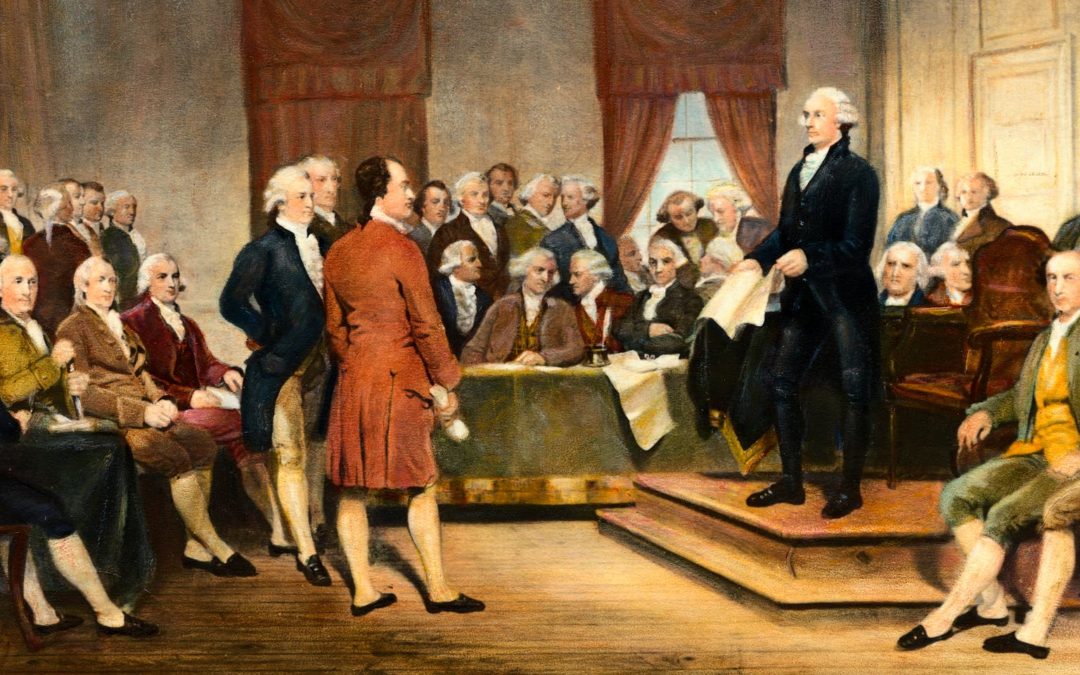The United States of America holds the unique position of being the first Constitutional Republic to guarantee freedom to all citizens. In the past, citizens’ rights were up to the whim of a monarch with complete control. Discriminating against a group because of their religious, political, or economic views was the prerogative of the king or queen. Minority ethnic and religious groups often suffered restrictions on where they could live, what they could do for a living, and even practicing their religion.
[blockquote]For this system to work, everyone must
participate and vote, even in protest.[/blockquote]
The Constitution guarantees all these rights, and more, to citizens, as even the President is subject to its precepts which he swears to uphold and enforce. When a President violates a law, Congress can impeach him, which has occurred three times in just the past 25 years.
For this system to work, everyone must participate and vote, even in protest.
The Constitution gives authority to States, which in turn allows counties, cities, and towns to dictate local laws. The Rent Guidelines Board (RGB) in New York City is a prime example of local regulation at work.
The RGB votes and determines the rent increases for over one million rent-stabilized apartments each year. Owners submit their income and expenses for the RGB, which should be the sole basis for their decision. However, they allow everyone on both sides to express their opinion through public hearings where owners, renters, and politicians testify. The Board examines the number of people testifying on both sides and considers what they say. Tenant speakers and attendees always outnumber owners, and if no one came for the owner’s side, this would send a message to the RGB that buildings don’t need a rent increase.
Just testifying sends a message, and what you say is also considered. Testifying at the RGB is as important as voting in city, state, and federal elections.
